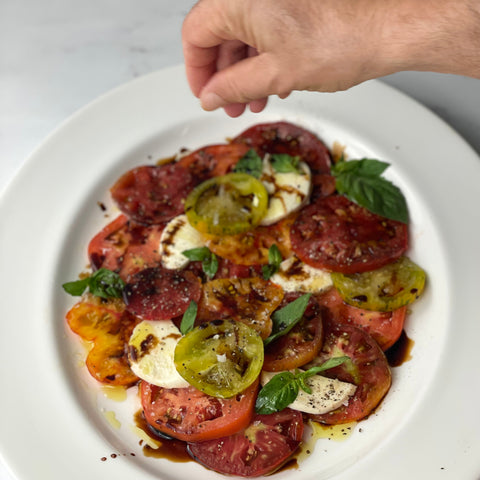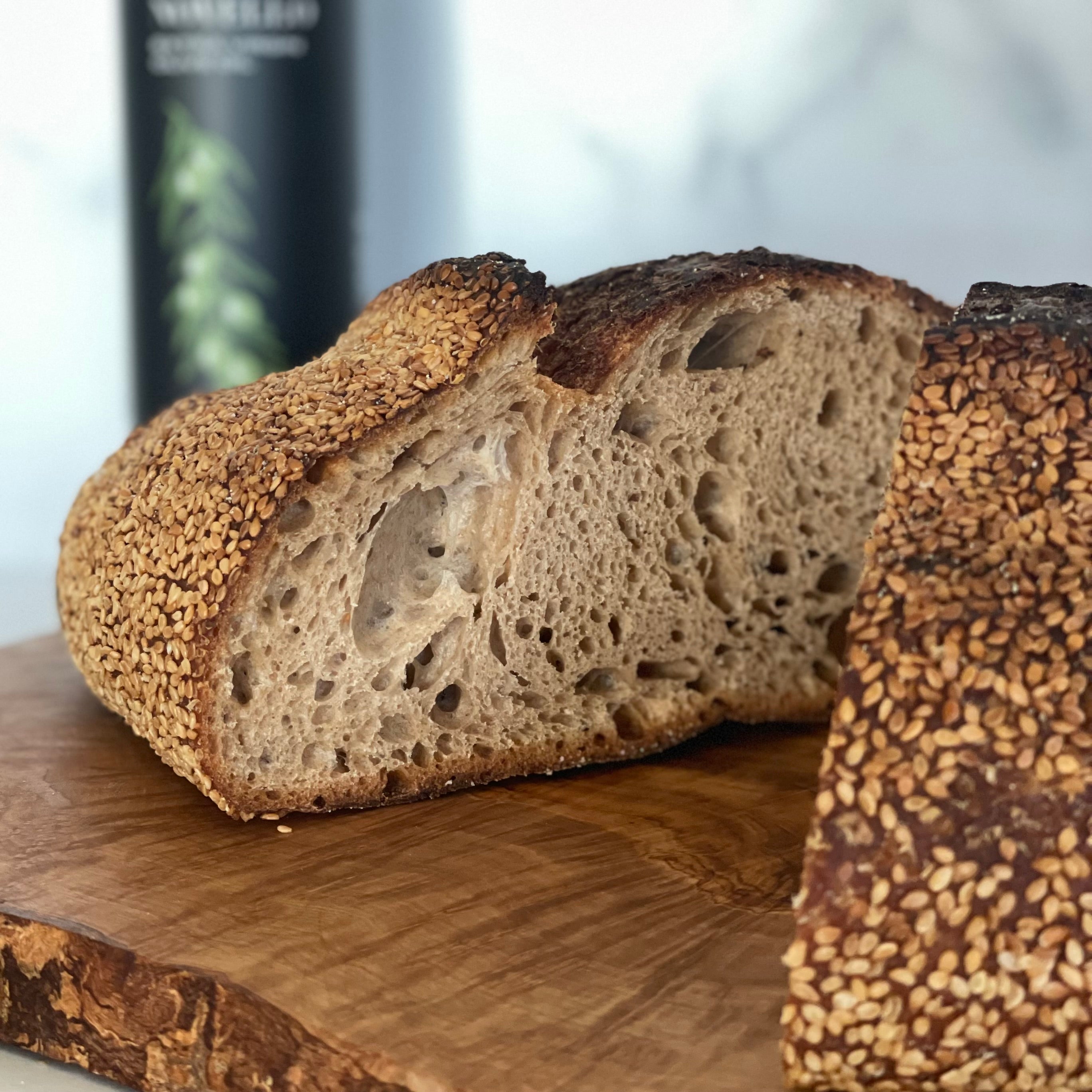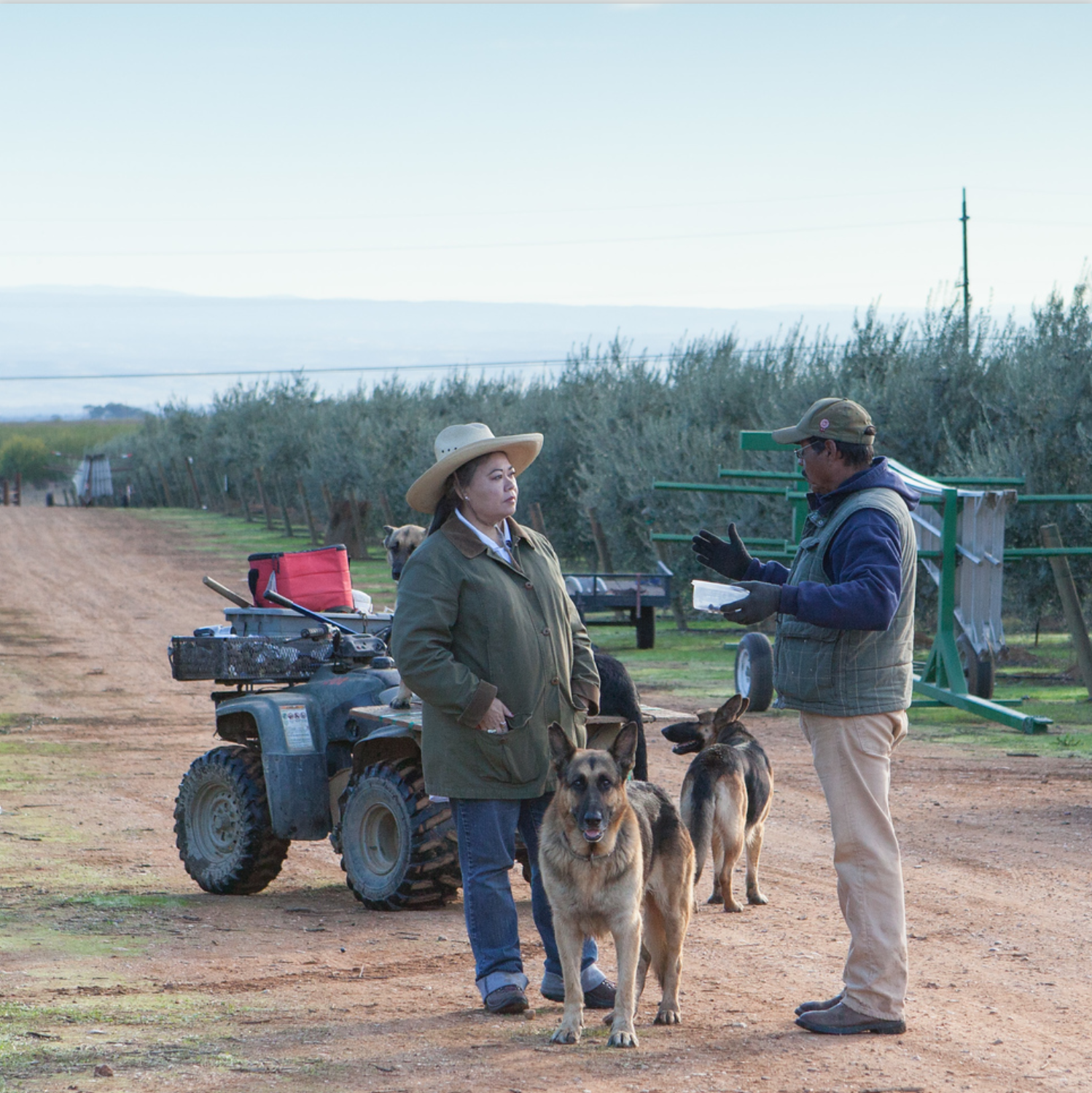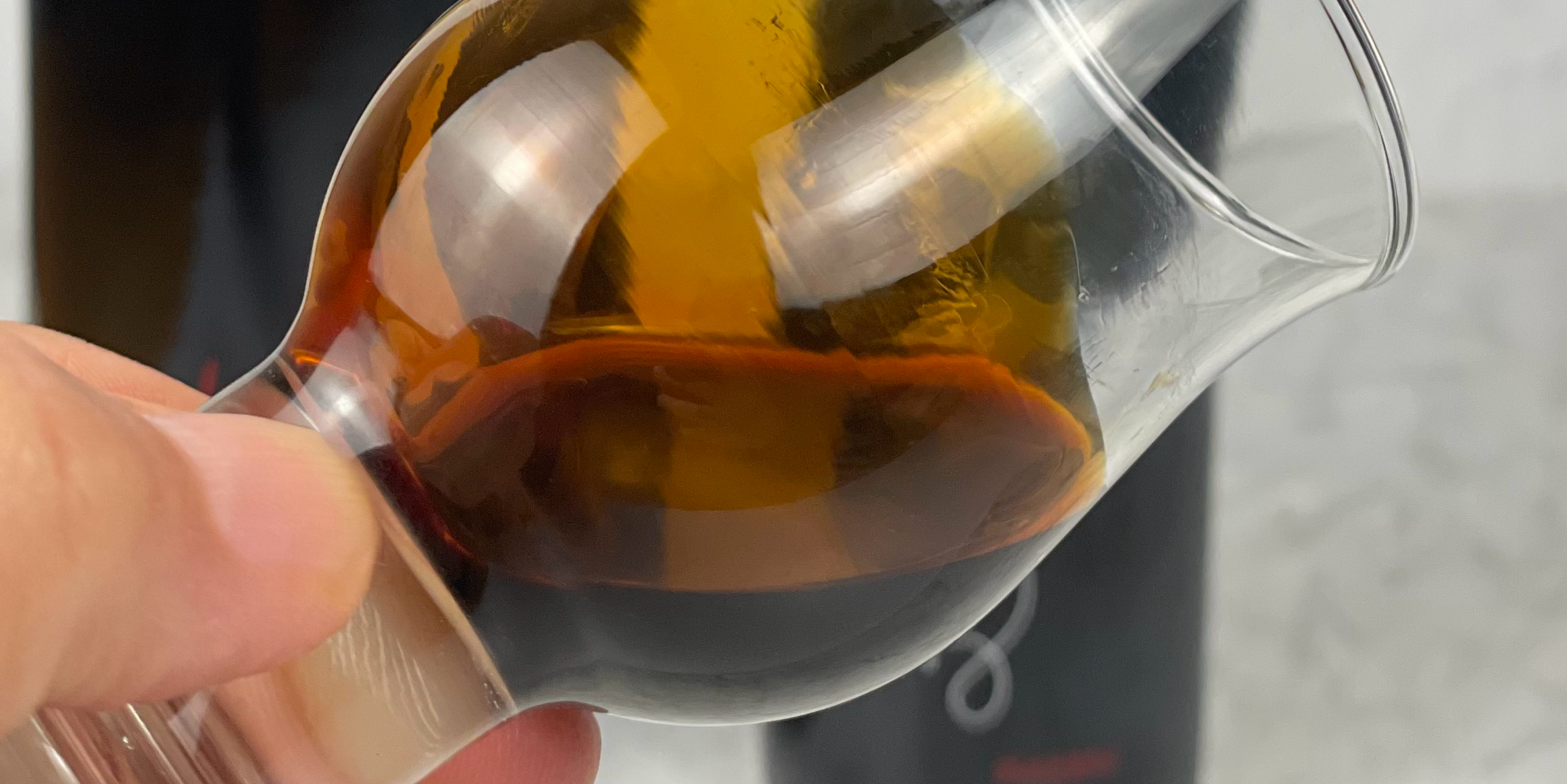
Tell Me More About Traditional Balsamic Vinegar
Traditional Balsamic Vinegar of Modena may well be the most celebrated and beloved item in our assortment based on the calls and letters I've received over the years. No other item on offer caused as much angst upon our announced closure in 2019, nor did any other item elicit as many anxious inquiries prior to reopening in 2022. I still receive weekly questions as the availability and/or authenticity of the vinegar--even after re-opening two years ago. What is the secret to its popularity? Here are the facts to help understand what sets our vinegar apart.
Making It Our Own
I first started sourcing vinegar for Lucero Olive Oil 14 years ago in early 2010. Since that time I've improved the offer twice, first in 2015 and again in 2022. The 2015 offer was based on two different formulas imported in bulk, blended to my tastes, then bottled here. 2015's reformulation improved the percentage of grape must and eliminated the use of caramel color additives.
The current offer has been improved further by accepting only affinato grade vinegar which heightened aroma, flavor, viscosity, and your overall experience. There is much about this product that make it traditional. Here are the details.
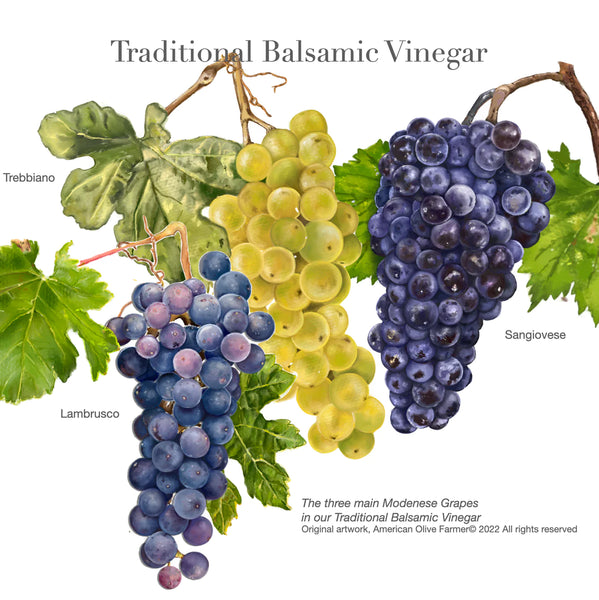
The Grapes
The grapes used are solely Modenese in origin, mainly Trebbiano, Lambrusco, and Sangiovese varieties.
As with wine, the grape varieties selected for production make an appreciable difference in the final product's aroma and flavor. Many common vinegars in today's marketplace use grapes from outside of Modena, sometimes even "table grapes", which is one of the several reasons why grocery store vinegars do not taste very exciting.
The Reduction
No hurried industrial furnaces here! Another aspect of what we do is select vinegars made from grape must which has been reduced using the direct open flame method. This ensures the additional layers of complexity you enjoy via natural caramelization. If desired, a significant amount of time and money can be saved by reducing vinegar in closed high-pressure kettles, a technique which is fast, clean, and reliable, however, much aroma and flavor is sacrificed in the effort. The high-pressure kettle method is not for us as our vinegar uses the direct open flame method for reduction.
The Aging
Age matters, but the juice matters more! These vinegars are aged in Slavonian oak using the solera method, by which portions of a larger cask are transferred into ever smaller casks over time. It is not lawful in Italy to claim specific ages for balsamic vinegar because every vinegar that is made using the solera method is comprised of a variety of different production lots of different ages.
That said, it is the convention that an affinato must be in wood for at least 12 years.
A significant disservice has been made to customer by marketers who promote aging as a sign of quality. Balsamic vinegar is the same as wine in this regard; uninteresting grapes do not make interesting wine or wine vinegar by aging.
Reminder: grape juice that was uninspiring when fresh will merely be OLD and uninspiring after reduction and aging.
The Assessment and Testing
You can be confident of rigorous standards being maintained in Italy by the producer and consistent testing being employed by me here. Each batch is assessed for authenticity and graded by a third party organization in Italy called the Assaggiatori Italiani Balsamico, thus we can claim affinato grade without reservation. Additionally, each batch is 3rd party tested at a certified lab for heavy metals, sugars, acidity, etc., thus we can claim the Modena standard 6% acidity, and know we can pass California's rigorous Prop. 65 selling and reporting requirement. We take heavy metals so seriously that we include the Prop. 65 notice in every shipment, even if the product is shipping to a destination outside of California and even if the product tests below the regulatory requirement, which it does as of our last import of Fall 2022. Use this link to read more about "Facts about Lead in Balsamic Vinegar". When the Fall 2024 import arrives those lots will be tested too.
The Harmony and Complexity
The overall balance and harmony of our vinegar is notable. The exquisite tension that a maker can strike between sweetness and acidity is a large part of the artistry inherent in this product. Too much sweetness, and a vinegar becomes overly viscous--even cloying. Too much acid, and the sad thin offering will etch the enamel from your teeth. Interestingly, what you're getting with the vinegar I offer has both higher acidity AND a higher sugar content versus many other vinegars in the market today. Traditional Balsamic Vinegar of Modena purchased here holds to the Modenese standard of 6% acidity and not the mere 4% you often see in California, and our vinegar is denser with more sugar per serving at 12 grams versus what you see declared on other labels at only 3, 5, or 9 grams. This is achieved by investing in a higher percentage of premium quality reduced grape must as a percent of the total formula in each bottle.
Our traditional balsamic vinegar, this aceto balsamico tradizionale di Modena, is plummy, honeyed, luscious, and exceptional.
The Source
Lucero was not and is still not a vinegar maker, nor am I. The vinegar is produced by an artisan vinegar maker in Modena, is imported in bulk amounts, then bottled here in the United States. As the original and current négociant I changed the brand name from "Lucero" to "Tagami" to make this distinction clearer when I re-launched the company in 2022.
As a bulk importer we're not allowed to use any official designation such as DOP or IGP to indicate protected domain status, which is why the word "condiment" always appears on the bottle, however, as noted above every lot is tasted and approved as affinato by the official consorzio in Modena.
Upon this you can rely: every micro-lot of vinegar we offer at American Olive Farmer is from the maker, and every one is a traditional Modenese recipe using only two ingredients--local grape must and red wine vinegar. There are no other ingredients; no flavors, no aromas, no caramel color, no preservatives, and no added sugar. Niente.
If you have enjoyed what we bottle for you and agree that this vinegar is exceptionally good, please consider leaving a product review for other customers on either the 375 ml or 750 ml page. Those testimonials are very much appreciated!
Liz Tagami
10 January 2024
Corning, California
